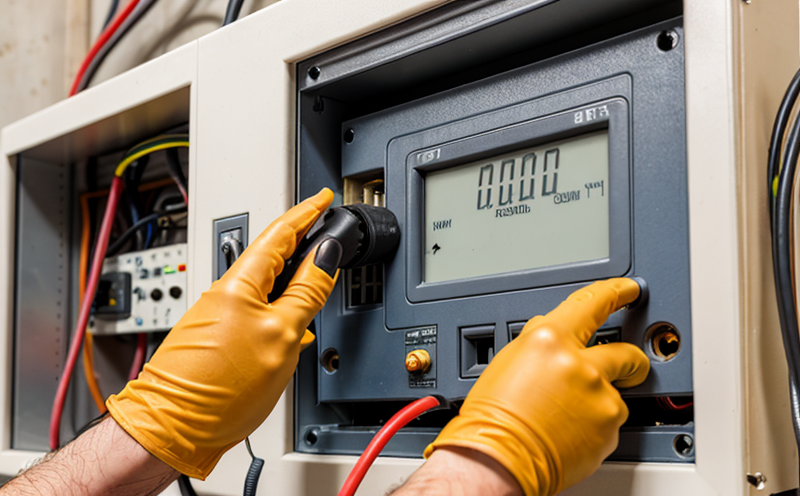BS EN 62660 Electrical Functional Testing of Lithium-Ion Batteries for EVs
The testing and certification of lithium-ion batteries in electric vehicles (EVs) are critical to ensuring safety, performance, and compliance with international standards. The British Standard EN 62660 is specifically designed to address the electrical functional testing requirements for these batteries. This standard provides a framework for evaluating the electrical integrity, functionality, and safety margins of lithium-ion cells used in EVs.
Compliance with this standard ensures that the battery systems meet stringent criteria regarding temperature cycling, overcharge/overdischarge conditions, high-temperature storage tests, and more. The testing process is designed to identify potential weaknesses early on, which helps manufacturers refine their products before they reach the market. This not only enhances consumer confidence but also supports regulatory compliance.
The testing typically involves a series of simulated real-world scenarios that mimic the conditions under which the batteries will operate in an EV. These include:
- Temperature cycling to simulate extreme weather conditions
- Overcharge/overdischarge tests to assess cell stability and safety margins
- High-temperature storage at 60°C for extended periods
- Short-circuit, open-circuit, and over-discharge tests to evaluate thermal runaway prevention measures
The test apparatus used in this process includes sophisticated battery testers capable of simulating various operating conditions. These instruments are calibrated according to international standards such as ISO 12405-3:2016 and ASTM G89, ensuring accurate and repeatable results.
The acceptance criteria for passing these tests are stringent and vary based on the specific requirements outlined in EN 62660. Cells that fail any of these tests must undergo further investigation or be reworked until they meet all specified parameters. This process ensures that only reliable, safe batteries enter the market.
Understanding how different factors can impact battery performance is crucial for R&D engineers and quality managers. For instance, temperature variations during charging and discharging cycles can significantly affect a cell's lifespan and efficiency. By adhering to this standard, manufacturers can ensure their products perform optimally across diverse environments.
The importance of compliance with EN 62660 cannot be overstated. Non-compliance could lead to safety issues that compromise both vehicle performance and public trust. Therefore, it is essential for companies involved in the EV industry to prioritize this aspect of their product development process.
In summary, the BS EN 62660 electrical functional testing protocol serves as a vital tool in ensuring the safety and reliability of lithium-ion batteries used in electric vehicles. By rigorously adhering to these standards during manufacturing, quality assurance teams can help maintain high levels of consumer confidence while complying with international regulations.
Applied Standards
The primary standard applied in this service is BS EN 62660. This British Standard is an adaptation of the International Electrotechnical Commission (IEC) and American Society for Testing and Materials (ASTM) standards, tailored specifically to the European context.
Some other relevant international standards include:
- ISO 12405-3:2016 - Battery chargers, battery packs, and batteries for electric road vehicles — Part 3: Safety requirements
- ASTM G89 - Standard test methods for resistance of materials to liquid water and moist air
The application of these standards ensures consistent testing procedures across different regions, promoting global harmonization in the EV industry. The use of internationally recognized guidelines also helps manufacturers meet regulatory requirements more efficiently.
Industry Applications
- Automotive Manufacturing: Ensuring that battery packs used in electric vehicles are safe and reliable under all conditions. This includes testing for durability, thermal management capabilities, and overall system performance.
- Battery Suppliers: Verifying the quality of individual cells before they are assembled into larger modules or packs. This step helps identify any potential issues early on in the production process.
- R&D Engineers: Using this service to refine new designs and materials, ensuring that innovative solutions meet all necessary safety standards while maintaining high performance levels.
Environmental and Sustainability Contributions
The testing process described here plays a significant role in promoting sustainability within the automotive industry. By identifying and addressing potential weaknesses early, manufacturers can reduce waste associated with defective products reaching end users.
- Eco-friendly Production: Ensuring that only high-quality batteries make it to market minimizes the need for replacements or recalls later on, thus reducing environmental impact.
- Sustainable Materials: The emphasis on durability and longevity encourages the use of eco-friendly materials throughout the supply chain.





